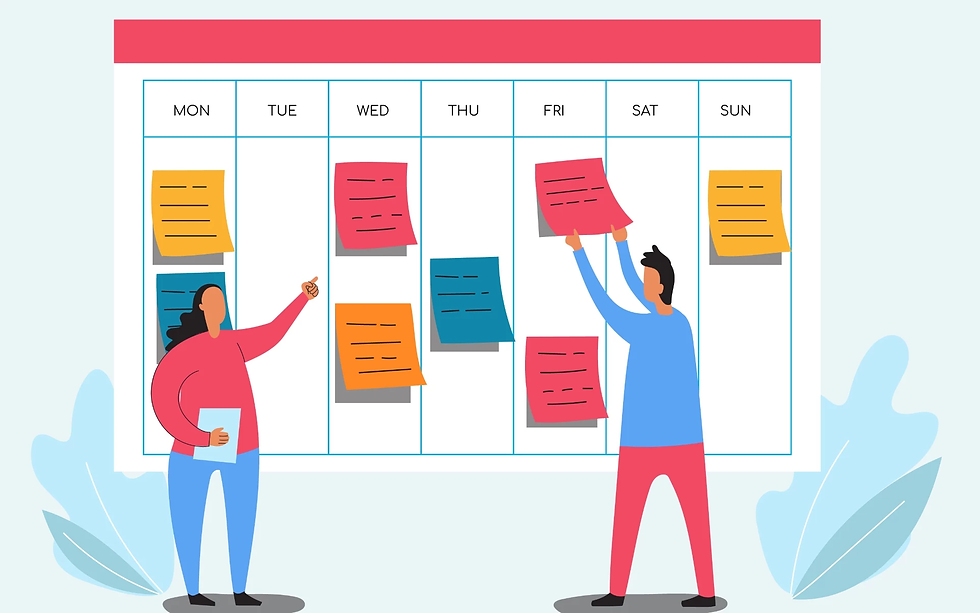“Do ye value life? Then waste not time, for that is the stuff out of which life is made.” — Benjamin Franklin.
Time is priceless; it is given to us every day, and it is up to us to make the most of it. It is one of our most precious resources. In this 4-hour book, Brian Tracy delves into what time is, dividing it into different categories, and how to use it to regain control of our lives. In the following lines, we will explore together what strategic planning is, how to set goals, how to make our time more productive, what strategies we can use to better manage free time, how to solve problems and make decisions, etc. Thank you for joining us, and enjoy reading.
In the book, the author identifies ten (10) types of time which are: strategic planning and goal setting time, productive time to accomplish more, time to increase income, free time, time spent at work, creative time, time to solve problems and make decisions, social and family time, rest and restoration time, and finally break time.
I: Time for strategic planning and goal setting.
Strategic planning, as described by Brian Tracy, involves a structured approach to setting and achieving goals by asking key questions about the current situation, the desired future, and the steps needed to close the gap. It emphasizes the importance of understanding one's strengths and weaknesses, setting clear objectives, and identifying potential obstacles to create an effective roadmap for success.
“The unexamined life is not worth living. There is no one and there never will be anyone exactly like you. Be yourself; everyone else is already taken.” — Socrates.
The best way to waste time is to dive into a task without setting clear goals first. Many people waste their time trying to achieve other people's goals. Before you do anything, you need to determine your direction. Ask yourself:
What do I really want to do with my life?
What do I really, really want to do with my life?
What do I really, really, really want to do with my life?
The answer to the third question will give you the direction to follow.

“Don't dwell on the past. Instead, focus on creating a better future. No matter how far you have gone on a wrong road, turn back.”
💡 Initiative-taking exercise:
— Define clearly the goals you want to achieve,
— Set clear, written goals and create action plans,
— Rank tasks according to their importance and potential consequences,
— Focus on high-value activities that bring you closer to your goals.
II: Productive time to accomplish more.
“He who plans the day's schedule each morning and follows it carries a thread that will guide him through the labyrinth of even the busiest life. But where no plan is established, where the disposition of time is left simply to chance, chaos will soon reign.” — Victor Hugo.
💡 Initiative-taking exercise:
— Every morning, make a list of everything you plan to accomplish that day (you can also make this list the night before going to bed, which will allow your subconscious to better absorb it),
— Set priorities on this list and then tackle the activity that represents the best possible use of your time,
— Discipline yourself to start with your most important task and persevere until you complete it.
III: Time to increase your income.
“Thought is the source of all wealth, all success, all material gain, all great discoveries and inventions, and all achievements.” — Claude N. Bristoble.
Your earning power is the sum of your knowledge, skills, and ability to achieve results that people are willing to pay for. By continually improving your skills and knowledge, you increase your value to your employer or clients, which translates into higher income and more opportunities for advancement.
💡 Initiative-taking exercises:
— Determine the skill that, if you excelled at it, would allow you to make a greater contribution to your company than any other skill.
— Set a goal to develop this skill, create a learning plan, and then work hard until you master it, putting in the time it takes.
— Set aside at least 10 hours per week to learn, study, and develop your most important skill.
IV: Spare time.
A week consists of 168 hours. An average adult works 8 hours a day (or 40 hours a week), sleeps 8 hours a day (or 56 hours a week), and gets dressed, eats, and travels to and from work for 4 hours a day (or 28 hours a week). These tasks take up 124 hours, which leaves 44 hours of spare time per week. Used properly, this time is an opportunity to learn more and invest in your development.
💡Initiative-taking exercises.
— Harness the power of compound interest in your life by learning additional skills in your spare time.
— Resolve to join the top 20% of earners in their field,
— Find out what these people spend their free time doing in order to stay ahead of the pack, then do the same thing until you have mastered it through your way of thinking and acting.
V: Time spent at work.
“Work all the time you are at work.”
There are 7 time thieves at work which are:
Interruptions related to phone calls, emails and text messages,
Unexpected visitors,
Meetings (which waste 30 to 40% of our time),
The eventualities to be dealt with,
Procrastination,
Chatter and idle conversations,
Indecision and delays.

These time-wasters not only cost you productivity but also undermine your business's performance. To avoid this, you must:
💡 Initiative-taking exercise.
— Work all the time you are at work,
— Keep your devices turned off,
— Plan your meetings so that you accomplish as much as possible in the shortest amount of time.
VI: Creative time.
“We have been given the ability and power to create attractive mental images and to find them automatically imprinted in our environment.” — John MacDonald.
Creativity is like a muscle: the more you use it, the stronger it gets. By regularly engaging in creative thinking exercises and challenging your assumptions, you can generate new ideas and innovative solutions.

💡Initiative exercise:
— Mentally picture, with absolute clarity, the goal of success and fortune that you would like to achieve. Clearly picture in your mind what your life and career will look like when you have achieved this goal,
— Gather information that may help you achieve this goal,
— Set aside moments of silence and reflection during which your superconscious will work to provide you with the exact answer you need.
VII: Time to solve problems and make decisions.
“I have learned that success is measured not so much by the station one has attained in life as by the obstacles one has overcome in trying to succeed.” —Booker T. Washington.
Earl Nightingale said: We become what we think about most of the time. If we constantly think about the problems we face, the likelihood of getting out of them anytime soon is quite low. However, by focusing on possible solutions and taking the necessary actions, we are more likely to overcome them and achieve our goals.
💡Initiative-taking exercises:
— What is the problem that is giving you the most trouble right now?
— Write it down at the top of a page: How can we solve the problem?
— Discipline yourself or with others to find 20 different ways to solve this problem.
— Take immediate action on at least one of these answers.
VIII: Time spent in society and with family.
“Looking back on your life, you will feel that the moments when you felt truly alive were those when you did things with love.” — Henri Drumont.
The quality of our lives is largely determined by the quality of our relationships. The amount of time invested is often directly correlated with their quality. By devoting uninterrupted time to your most important relationships, whether personal or professional, you will increase your chances of having better quality relationships.
💡Initiative-taking exercises:
— Identify the people who matter most to you,
— Determine the most important things you could do or say to them in order to make them feel happier and valued,
—Resolve to say or do something for someone every day to make them feel valued and more important.
We certainly have limited time, which also limits our ability to invest in each person we meet. However, this doesn't prevent us from being respectful and pleasant and maintaining good relationships with the people around us. There are 7 keys to successful relationships, whether with loved ones or not:
— Be positive, refuse to criticize anyone,
— Be nice,
— Practice acceptance, smile at the people you meet,
— Express your gratitude:
“In any language, the most magical word is probably: Thank you.”
— Practice admiration, everyone likes compliments.
— Express praise and approval,
— Listen carefully.
IX: Time for rest and restoration.
“Fatigue makes cowards of us all.” — Vince Lombardi.
Your health and well-being are more important than any other factor in the quality of your life. Rest is not a luxury, but a necessity to perform better. By allowing yourself to rest and recharge, you will return to work more focused, more creative, and more productive.
💡 Initiative-taking exercises:
— Resolve to set aside time for rest and relaxation to optimize your work performance,
— Plan your vacations early in the year and then plan your professional responsibilities accordingly,
— Book your vacations and pay for them early in the year to ensure you never postpone the rest and relaxation you need.
X: Break time.
“Dream big, and what you dream you will become. Your vision is the promise of what you will one day be; your ideal is the prophecy of what you will finally discover.” —James Allen.
From time to time, take breaks, slow down your actions, and use your mindfulness to solve problems. As the author says, there is nothing more valuable or important than thinking. The quality of your thinking will determine the quality of your life.
💡Initiative-taking exercises:
— Immerse yourself in silence often (once a day);
— Practice mindfulness by slowing down your pace of life,
— For a few minutes each day, practice meditation.
On a daily basis, I know how important it is to distinguish between different types of time, and especially to maintain a balance between them. That's why I strive to structure my days so that I have time for myself, for my loved ones, for my work, in addition to planning time, eating time, and not forgetting free time and leisure time. Only when all these boxes are checked can I be satisfied with having had a good day, a good week, a good year, and who knows, a good life. Once again, I want to thank you for taking the time to read our work. I know how precious it is, which is also why I invest my time to produce the best content. Be the master of your life by becoming the master of your time. Invest in the activities and relationships that make you grow, that make your soul shine. Refuse to let your time be stolen, refuse to let your life be stolen. Thank you for reading. Take care and be blessed.
Sources:

Comments